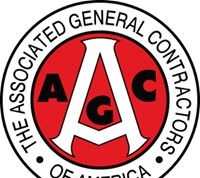Norton Releases Opening Statement on Her Amendment to Strike Anti-Home-Rule Language in OGR Committee Plan
WASHINGTON, D.C. – (RealEstateRama) — The office of Congresswoman Eleanor Holmes Norton (D-DC) today released her prepared opening statement for a House Oversight and Government Reform Committee (OGR) markup on the Committee’s Authorization and Oversight Plan for the 115th Congress tomorrow, Tuesday, January 31, 2017, at 10:00 a.m., in 2154 Rayburn House Office Building. Norton has filed an amendment to strike an anti-home-rule provision in the plan that calls for increased oversight of the District of Columbia’s local affairs.

The plan states that “the Committee will review District expenditures on local programs to ensure that the expenditures are in line with Congressional mandates and federal law. The Committee will also work to strengthen Congress’s oversight of the District and exercise of its plenary legislative authority granted by the Constitution.” The Committee’s plan for the 114th Congress did not call for increased oversight.
In her opening statement, Norton said, “If this committee wants to reform and improve the operations and finances of the D.C. government, it should codify D.C.’s budget autonomy referendum in federal law, instead of trying to repeal it, as this committee and the House tried, but failed, to do last Congress…Budget autonomy means lower borrowing costs; more accurate financial projections; improved operations; and the District government will not shut down during a federal government shutdown.”
Norton’s statement, as prepared for delivery, follows.
Statement of Congresswoman Eleanor Holmes Norton
Committee on Oversight and Government Reform
Markup of Authorization and Oversight Plan for the 115th Congress
January 31, 2017
Mr. Chairman, on behalf of the nearly 700,000 American citizens who live in the District of Columbia and have all the obligations of citizenship, including paying the highest per capita federal income taxes in the United States, but are denied self-government and voting rights, I offer an amendment to strike the new, unprecedentedly broad language in this Oversight Plan calling for expanded oversight of the District’s local affairs.
In a Washington Post op-ed last Sunday on D.C.’s Death with Dignity Act, the chairman of this committee and Heritage Foundation President Jim DeMint argued that Congress not only has the constitutional authority to regulate D.C.’s local affairs, but that it has the obligation to do so. We do not dispute congressional authority over the District, however inconsistent that authority is with democracy and the bedrock American principle of local control. It is entirely unpersuasive to argue, however, that Congress also has the obligation to regulate D.C. local affairs. If that were the case, the Home Rule Act of 1973 would be unconstitutional. Congress has a great deal of authority to regulate matters in the United States that it chooses not to exercise, for example, under the Commerce Clause.
According to the op-ed, Congress only acts on D.C. local matters when, “[i]n the interest of protecting D.C. residents, it is imperative that Congress act.” That has never been the standard for congressional intervention in D.C.’s local affairs. D.C. residents do not need Congress to protect them from the policies enacted by their own duly elected local officials or from themselves when they approve initiatives and referenda. The fact is, Congress only acts when it has ideological disagreements with D.C. During this Congress alone, bills have already been introduced to wipe out D.C.’s gun laws, to permanently prohibit D.C. from spending its local funds on abortion services for low-income women, and to disapprove the Death with Dignity Act, which this committee will mark up on Thursday.
The chairman and Mr. DeMint wrote with hyperbole that “we will rage for the citizens of the District….” As the only Member of this committee elected by, and accountable to, D.C. residents, I can tell the majority that D.C. residents would very much appreciate your “raging” for their democratic rights, including statehood, voting rights, budget autonomy and legislative autonomy, instead of actively working against laws passed democratically by local authorities.
The chairman has indicated that this committee intends to focus this Congress on the “government reform” part of its mandate. If this committee wants to reform and improve the operations and finances of the D.C. government, it should codify D.C.’s budget autonomy referendum in federal law, instead of trying to repeal it, as this committee and the House tried, but failed, to do last Congress. In contrast, the prior two Republican chairmen of this committee both introduced legislation to grant D.C. budget autonomy. As former Republican chairman Tom Davis said: “The benefits of budget autonomy for the District are numerous, real, and much needed. There is no drawback.” Budget autonomy means lower borrowing costs; more accurate financial projections; improved operations; and the District government will not shut down during a federal government shutdown.
Mr. Chairman, I urge the majority to follow its principles on local control and to respect the democratic rights of D.C. residents. I urge adoption of my amendment.













